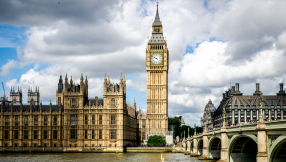Bishopâs plea as Sri Lankaâs politicians vote on presidentâs power
Politicians are voting on the Bill today, which if passed would end the restriction on the number of terms the president can serve, currently set at two. The change would clear the way for President Mahinda Rajapaksa to seek office again in 2016.
It would also hand him substantial powers, including the freedom to appoint the heads of key commissions, including the elections, judicial and police commissions.
Bishop Duleep de Chickera is among the opponents who fear that the country’s fragile democracy will be thrown into jeopardy if the changes are approved.
He said many people in Sri Lanka were “deeply alarmed” by the proposals and that they would signal a “step backwards” for the country.
“It will inevitably lead to a further, dangerous politicisation of our national institutions and a speedier, destructive erosion of our already fragile democratic culture,” he said.
“It is therefore imperative that parliament rejects this Bill, and that all who value democratic freedom in the country voice their objection to it.”
Bishop de Chickera called on the government to uphold the 17th Amendment, which protects the independence of the various commissions.
He said: “It is only after this amendment is given a chance to impact on our shared national life that we will be able to assess the need for any further democratic constitutional amendments.”
President Rajapaksa won nearly 60 per cent of the vote when he was elected for a second time in January. He enjoys strong support among the Sinhalese majority as it was during his first term in office that a 25-year insurgency by Tamil Tiger rebels was brought to an end.
The government is expected to secure the two-thirds majority vote needed to pass the Bill after the Supreme Court ruled on Tuesday that a referendum would not be necessary to make the constitutional changes.
Bishop de Chickera accused the government of rushing the Bill through parliament and said that it must provide “adequate space” for public debate on any future proposed amendments.
“It is when the people are properly informed of the pros and cons of constitutional change, and given a chance to participate in this process and make informed decisions, that democracy prevails and our legislators fulfil their obligations,” he said.
“The political freedom that our legislators are endowed with is determined by the democratic rights and aspirations of the people.
“To disregard these obligations amounts to a misappropriation of the people’s trust.”













